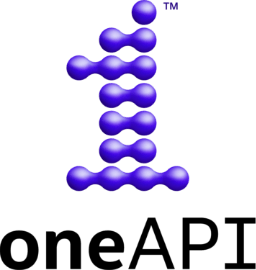
Unified Acceleration Foundation
Join us to drive an open standard accelerator software ecosystem!
- Build a multi-architecture multi-vendor software ecosystem for all accelerators.
- Unify the heterogeneous compute ecosystem around open standards.
- Build on and expand open-source projects for accelerated computing.

LF Live Webinar: UXL Foundation: Drive an Open Standard Accelerator Software Ecosystem
Come learn about the UXL Foundation and meet members of our Steering Committee to learn more about oneAPI and why these companies have come together to use open source elements of oneAPI to drive solutions for their businesses. This webinar will cover:
- What are the UXL Foundation focus areas?
- What is the oneAPI Specification?
- What target markets are specific companies targeting for solutions based on oneAPI?
- What open source project momentum is there and where can we learn more?
Steering Members
Steering Committee Members

Andrew Wafaa
Senior Director Software Communities & Fellow


Rod Burns
VP of Ecosystem


Masahiro Doteguchi
Senior Engineering Manager


Dr. Priyanka Sharma
Director of Software Engineering


Penporn Koanantakool
Senior Software Engineer


Dave Murray
AI Software Product Management


Robert Cohn
Senior Principal Engineer


Dr. Vinesh Sukumar
Head of AI/ML Product Management


Hanwoong Jung
Project Leader of Universal Deep Learning Compiler (UDLC)


Ramesh Radhakrishnan
Technical Director , OCTO HPC/ML

oneAPI Spec Elements
The Spec is made of 7 core elements.

oneDPL
oneAPI Data Parallel C++ Library
A companion to the DPC++ Compiler for programming oneAPI devices with APIs from C++ standard library, Parallel STL, and extensions.

oneDNN
oneAPI Deep Neural Network Library
High performance implementations of primitives for deep learning frameworks.

oneCCL
oneAPI Collective Communications Library
Communication primitives for scaling deep learning frameworks across multiple devices.

Level Zero
oneAPI Level Zero
System interface for oneAPI languages and libraries.

oneDAL
oneAPI Data Analytics Library
Algorithms for accelerated data science.

oneTBB
oneAPI Threading Building Blocks
Library for adding thread-based parallelism to complex applications on multiprocessors.

oneMKL
oneAPI Math Kernel Library
High performance math routines for science, engineering, and financial applications.
UXL News

UXL Foundation and Khronos Collaborate on the SYCL Open Standard for C++ Programming of AI, HPC and Safety-Critical Systems
In a world where AI, HPC and Safety-Critical acceleration is shifting toward heterogeneous architectures that integrate processors with different architectures from multiple vendors, the need for seamless interoperability and shared open standards has never been more critical. That’s why the UXL Foundation (Unified Acceleration) and the Khronos Group have entered into a liaison agreement to help accelerate the evolution of open accelerated heterogeneous programming.
The Unified Acceleration Foundation is an evolution of the oneAPI initiative and focuses on the development of a specification and open source projects through Working Groups and Special Interest Groups (SIGs).
Specification
The specification includes 7 core elements of oneAPI, developed by a core team with feedback from the community.
Open Source
oneAPI allows developers to make accelerator choices.
Community
We invite radical collaboration from across the ecosystem to create a shared industry spec.
Stay connected with the UXL Foundation!
We send occasional news about the UXL Foundation and oneAPI technical progress, events, community discussions and projects.
Thank you for subscribing!




























